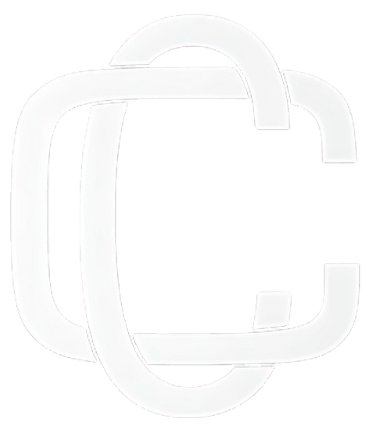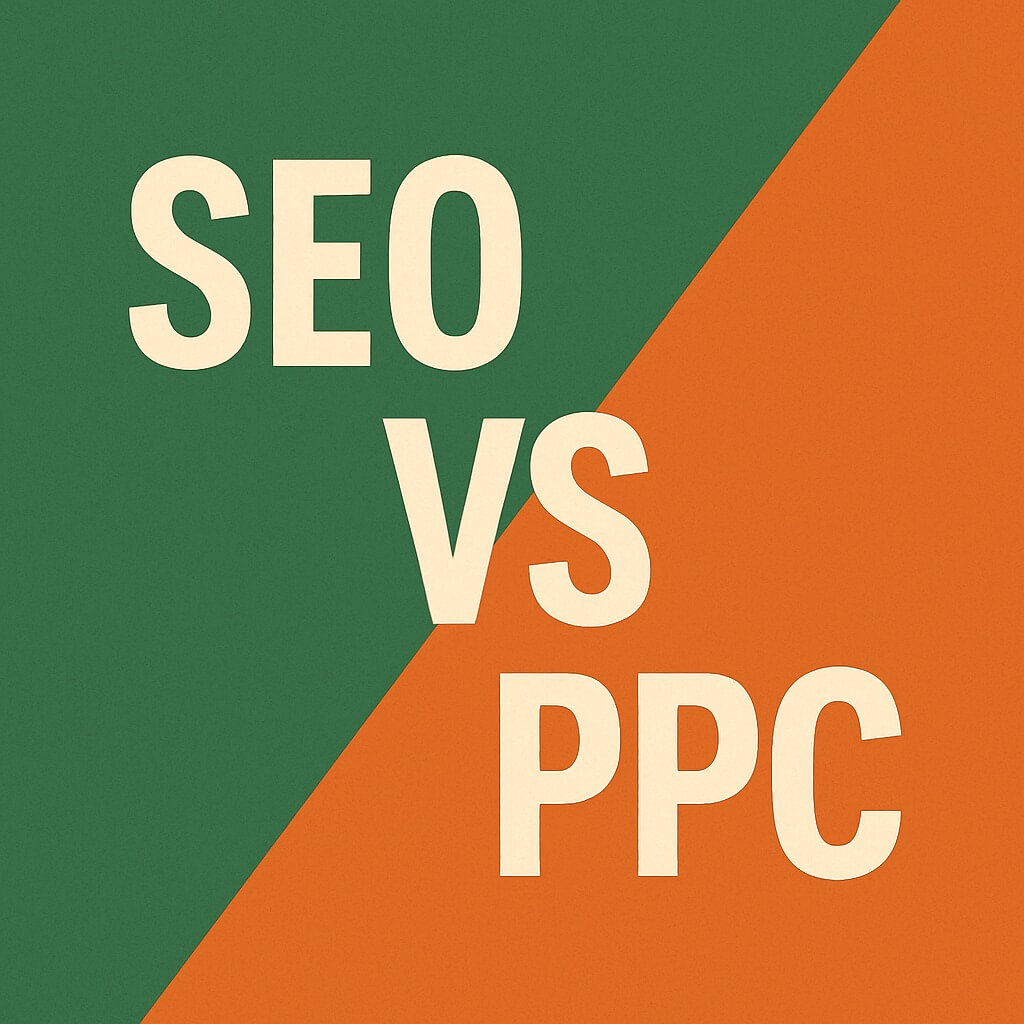Introduction:
In the dynamic landscape of digital marketing, Lebanese businesses constantly seek effective strategies to enhance their online visibility and drive growth. Two powerful contenders consistently emerge in this quest: Search Engine Optimization (SEO) and Pay-Per-Click (PPC) advertising. The debate of SEO vs. PPC is not new, but as we step into 2025, understanding their evolving roles, unique strengths, and how they can synergize is more crucial than ever. This comprehensive guide will delve deep into both methodologies, providing you with the insights needed to make informed decisions for your business in Lebanon. Whether you’re aiming for immediate impact or long-term brand building, mastering the nuances of SEO and PPC is paramount for digital success.
Understanding Search Engine Optimization (SEO)
Search Engine Optimization (SEO) is the practice of increasing the quantity and quality of traffic to your website through organic search engine results. It’s about making your website more appealing to search engines like Google, so they rank your content higher for relevant queries. Think of it as earning your spot at the top of the search results, rather than paying for it. This organic approach builds credibility and trust with your audience over time.
How SEO Works: The Core Pillars
SEO is a multifaceted discipline that involves optimizing various aspects of your website. The process typically revolves around three core pillars:
- On-Page SEO: This refers to optimizations you make directly on your website. It includes crafting compelling content, optimizing title tags, meta descriptions, and header tags (H1, H2, H3), ensuring proper keyword density, and structuring your content for readability. For Lebanese businesses, this means creating content that resonates with the local audience and addresses their specific needs.
- Off-Page SEO: This involves activities performed outside of your website to improve its search engine ranking. The most significant aspect of off-page SEO is link building, where other reputable websites link back to your content. These backlinks act as
votes of confidence, signaling to search engines that your site is a valuable resource. Social media marketing and local SEO (especially crucial for businesses in Lebanon) also fall under off-page SEO. * Technical SEO: This focuses on the backend of your website to improve its crawlability and indexability by search engines. It includes optimizing site speed, mobile-friendliness, site architecture, and implementing schema markup. A technically sound website ensures that search engines can easily discover and understand your content.
The Long-Term Benefits of SEO
Investing in SEO is a long-term strategy that yields sustainable results. Unlike paid advertising, where visibility ceases once you stop spending, the benefits of SEO compound over time. A well-optimized website can continue to attract organic traffic for years, providing a consistent stream of potential customers without ongoing per-click costs. This makes SEO a highly cost-effective solution for businesses looking for enduring online presence and brand authority. Moreover, ranking high in organic search results builds trust and credibility with your audience, as users often perceive organic listings as more authoritative and trustworthy than paid advertisements.
Challenges and Considerations in SEO
While the rewards of SEO are significant, it’s not without its challenges. SEO requires continuous effort and adaptation. Search engine algorithms are constantly evolving, necessitating ongoing monitoring and adjustments to your strategy. Results can take time to materialize, often several months, depending on the competitiveness of your industry and keywords. For businesses in Lebanon, local competition and specific market nuances can further influence the timeline for achieving top rankings. However, the long-term ROI and brand-building potential make these efforts worthwhile.
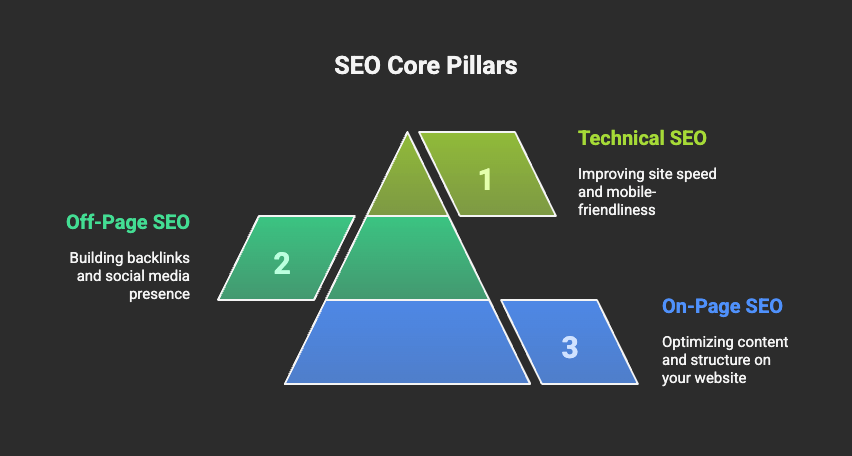
Understanding Pay-Per-Click (PPC) Advertising
Pay-Per-Click (PPC) advertising is a model of internet marketing in which advertisers pay a fee each time one of their ads is clicked. Essentially, it’s a way of buying visits to your site, rather than attempting to
“earn” those visits organically. PPC is most commonly associated with search engine advertising (like Google Ads), where ads appear at the top or bottom of search engine results pages (SERPs) based on specific keywords. It also extends to social media platforms and other websites.
How PPC Campaigns Work: Instant Visibility
PPC campaigns are designed for immediate impact and precise targeting. The process typically involves:
- Keyword Bidding: Advertisers bid on keywords relevant to their products or services. When a user searches for that keyword, an auction takes place to determine which ads will be shown and in what order.
- Ad Creation: Compelling ad copy and visuals are created to entice users to click. These ads are linked to specific landing pages on your website, optimized for conversions.
- Targeting: PPC offers granular targeting options, allowing businesses to reach specific demographics, geographic locations (highly beneficial for Lebanese businesses targeting local customers), interests, and even times of day. This ensures your ads are seen by the most relevant audience.
- Budget Control: You set a daily or monthly budget, and you only pay when someone clicks on your ad. This provides complete control over your spending.
The Immediate Benefits of PPC
The primary advantage of PPC is its speed. Unlike SEO, which can take months to show results, PPC campaigns can drive traffic to your website almost instantly. This makes it an excellent strategy for:
- Promoting Time-Sensitive Offers: Quickly generate leads or sales for promotions, events, or new product launches.
- Testing Marketing Messages: Rapidly test different ad copies, keywords, and landing pages to see what resonates best with your audience.
- Gaining Immediate Visibility: Appear at the top of SERPs for highly competitive keywords where organic ranking might be challenging or take a long time.
- Complementing SEO: Fill in gaps where your organic rankings are not yet strong.
Challenges and Considerations in PPC
While PPC offers quick results, it comes with its own set of challenges. The most significant is the ongoing cost; traffic stops as soon as your budget runs out. Competition can drive up bid prices, making some keywords very expensive. Effective PPC management requires continuous monitoring, optimization, and A/B testing to ensure a positive return on investment (ROI). Without careful management, PPC campaigns can quickly become costly and inefficient.
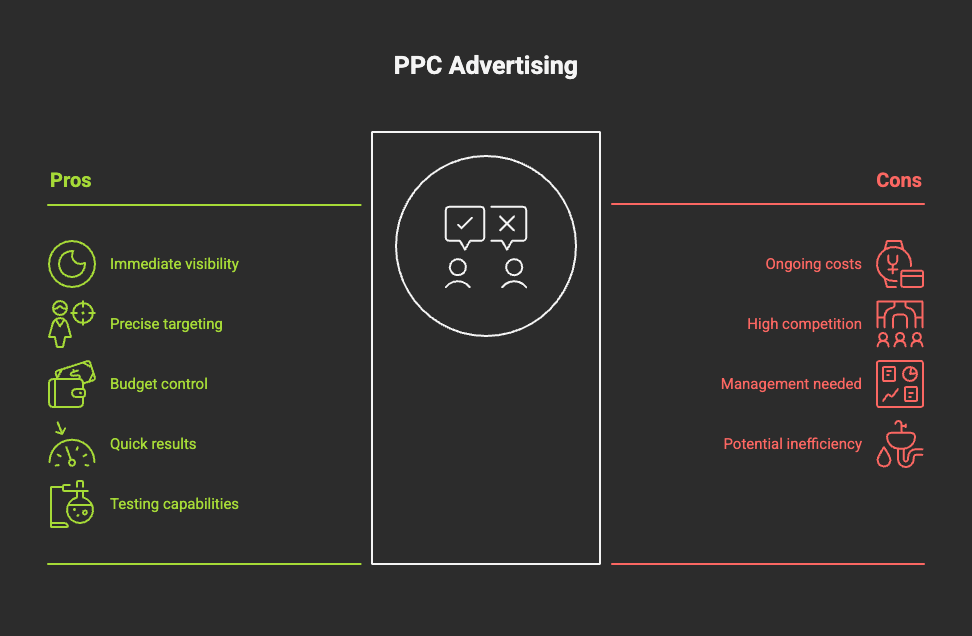
SEO vs. PPC: A Head-to-Head Comparison
The debate of SEO vs. PPC often boils down to a choice between long-term investment and immediate returns. While both aim to drive traffic and conversions, their mechanisms, timelines, and cost structures differ significantly. Here’s a comparative overview:
| Feature | Search Engine Optimization (SEO) | Pay-Per-Click (PPC) Advertising |
| Cost Model | Free clicks; investment in content, optimization, and link building | Pay-per-click (CPC); ongoing budget required |
| Time to Results | Long-term (months to years) | Immediate (days to weeks) |
| Visibility | Organic search results | Paid ad placements (top/bottom of SERPs, social media, etc.) |
| Control | Less direct control over rankings; influenced by algorithms | High control over ad copy, targeting, and budget |
| Credibility | High; perceived as more trustworthy and authoritative | Lower; clearly marked as advertisements |
| Sustainability | Sustainable; traffic continues without ongoing ad spend | Dependent on continuous budget |
| ROI | Long-term, compounding ROI | Immediate, measurable ROI |
| Flexibility | Slower to adapt to market changes | Highly flexible; quick adjustments to campaigns |
| Brand Building | Excellent for long-term brand authority and trust | Good for brand exposure and immediate recognition |
When to Choose Which: Strategic Decisions for Your Business
The decision between SEO and PPC isn’t always about choosing one over the other. Instead, it’s about understanding your business goals, budget, and timeline. Here’s a guide to help you make strategic decisions:
Choose SEO When:
- You seek long-term, sustainable growth: If your primary goal is to build enduring brand authority and a consistent stream of organic traffic, SEO is your best bet. The efforts you put in today will continue to pay dividends for years to come.
- You have a limited marketing budget for ongoing ads: While SEO requires an initial investment in content creation and optimization, the per-click cost is zero once you rank. This makes it highly cost-effective in the long run.
- You want to build trust and credibility: Organic rankings are perceived as more trustworthy by users. If establishing your brand as an industry authority is crucial, SEO is the way to go.
- You’re targeting a broad audience: SEO can help you rank for a wide range of keywords, attracting a diverse audience interested in your products or services.
Choose PPC When:
- You need immediate results: For new product launches, seasonal promotions, or urgent lead generation, PPC delivers instant visibility and traffic.
- You have a clear advertising budget: If you have funds allocated specifically for paid advertising and need to see quick returns, PPC allows for precise budget control and measurable ROI.
- You want to test new markets or offers: PPC campaigns can be quickly set up and adjusted, making them ideal for A/B testing different marketing messages, keywords, or target audiences.
- You’re targeting highly specific niches or demographics: PPC’s granular targeting options allow you to reach a very precise audience with tailored messages.
- You want to complement weak organic rankings: If your website is new or struggles to rank organically for competitive keywords, PPC can provide immediate visibility while your SEO efforts mature.

The Power of Synergy: Combining SEO and PPC for Maximum Impact
While the SEO vs. PPC debate often frames them as competing strategies, the most successful digital marketing campaigns in 2025 will leverage the strengths of both. Think of them not as rivals, but as complementary forces working towards a common goal: maximizing your online presence and driving conversions. A holistic approach that integrates SEO and PPC can yield results far greater than using either strategy in isolation.
How SEO and PPC Work Together:
- Data Sharing and Keyword Insights: PPC campaigns provide immediate data on keyword performance, including click-through rates (CTR) and conversion rates. This valuable data can inform your SEO strategy, helping you identify high-converting keywords to target organically. Conversely, strong organic rankings can reduce your reliance on expensive PPC bids for certain keywords.
- Enhanced SERP Real Estate: By ranking both organically and through paid ads for the same keywords, you dominate the search engine results page. This significantly increases your brand’s visibility and click-through potential, pushing competitors further down the page.
- Retargeting Opportunities: Users who visit your site through organic search can be retargeted with PPC ads, reminding them of your brand and encouraging them to convert. This creates a powerful funnel that nurtures leads from initial interest to conversion.
- Brand Building and Trust: While SEO builds long-term trust, PPC provides immediate brand exposure. When users see your brand consistently across both organic and paid results, it reinforces your authority and presence, leading to increased brand recognition and recall.
- Content Amplification: High-quality content created for SEO can be repurposed and promoted through PPC ads, extending its reach and driving more traffic. This ensures your valuable content gets seen by a wider audience.
For Lebanese businesses, a combined SEO and PPC strategy is particularly effective. It allows for immediate market penetration through targeted ads while simultaneously building a sustainable, long-term online presence that resonates with the local audience. CobraClicks, a leading digital marketing agency, understands these dynamics and specializes in crafting integrated strategies that deliver measurable results for businesses across Lebanon.
Unique Insights and E-A-T for 2025
In 2025, the digital marketing landscape continues to evolve rapidly. To truly outrank competitors, an article on SEO vs. PPC must offer more than just a basic comparison. It needs to provide unique insights, demonstrate expertise, authority, and trustworthiness (E-A-T), and be updated with the latest trends.
The Rise of AI in SEO and PPC
Artificial intelligence (AI) is no longer a futuristic concept; it’s a present-day reality profoundly impacting both SEO and PPC. In SEO, AI-powered algorithms (like Google’s RankBrain and BERT) are becoming increasingly sophisticated at understanding user intent and natural language. This means content needs to be more conversational, comprehensive, and truly answer user queries, moving beyond simple keyword stuffing. For PPC, AI is revolutionizing ad optimization, bidding strategies, and audience targeting, allowing for more efficient and effective campaigns. Businesses that embrace AI-driven tools and strategies will gain a significant competitive edge.
Hyper-Personalization and Local Relevance
With the increasing demand for personalized experiences, both SEO and PPC are shifting towards hyper-personalization. For Lebanese businesses, this means an even greater emphasis on local SEO, optimizing for local search queries, Google My Business listings, and location-specific content. PPC campaigns can leverage precise geographic targeting to reach customers in specific cities or neighborhoods within Lebanon. Understanding the cultural nuances and local search behaviors is paramount for success.
The Importance of User Experience (UX)
Google’s Core Web Vitals and other UX-focused ranking factors underscore the critical role of user experience in SEO. Fast loading times, mobile-friendliness, and intuitive navigation are no longer just good practices; they are essential for ranking. Similarly, for PPC, a poor landing page experience can lead to higher ad costs and lower conversion rates. Investing in a seamless and engaging user experience across all digital touchpoints is vital for both organic and paid success.
Data Privacy and Trust
With growing concerns around data privacy (e.g., cookie deprecation), building trust with your audience is more important than ever. Transparent data practices, clear privacy policies, and a focus on first-party data will become increasingly crucial for both SEO (e.g., through direct engagement and content subscriptions) and PPC (e.g., through consented data for targeting). Brands that prioritize user privacy and build genuine relationships will foster greater loyalty and engagement.
Frequently Asked Questions (FAQs)
Q1: Which is better for a new business in Lebanon, SEO or PPC?
A: For a new business in Lebanon, a combined approach is often the most effective. PPC can provide immediate visibility and traffic, helping you generate initial leads and sales while your SEO efforts mature. SEO, on the other hand, builds long-term brand authority and sustainable organic traffic. Starting with a small PPC budget to gain traction and gradually investing more in SEO for long-term growth is a recommended strategy.
Q2: How long does it take to see results from SEO in Lebanon?
A: The timeline for SEO results can vary significantly depending on factors like industry competitiveness, your website’s current authority, and the quality of your SEO strategy. Generally, businesses in Lebanon can expect to see noticeable results from SEO within 4-6 months, with significant improvements often taking 6-12 months or even longer for highly competitive keywords. Consistency and patience are key.
Q3: Can I do SEO and PPC myself, or should I hire an agency?
A: While basic SEO and PPC tasks can be learned, achieving optimal results and staying ahead of algorithm changes requires significant expertise, time, and resources. For most businesses, especially in a competitive market like Lebanon, partnering with a specialized digital marketing agency like CobraClicks can provide a significant advantage. Agencies have the tools, experience, and dedicated teams to develop and execute comprehensive, data-driven strategies that maximize your ROI.
Q4: What is the average cost of PPC in Lebanon?
A: The cost of PPC in Lebanon varies widely based on factors such as industry, keyword competitiveness, target audience, and campaign goals. Some businesses might start with a few hundred dollars per month, while others invest thousands. The key is to focus on ROI, ensuring that the revenue generated from your PPC campaigns outweighs the cost. A digital marketing agency can help you optimize your budget for maximum efficiency.
Q5: How do I measure the success of my SEO and PPC campaigns?
A: Success for both SEO and PPC is measured through various metrics. For SEO, key performance indicators (KPIs) include organic traffic, keyword rankings, bounce rate, time on page, and conversion rates from organic search. For PPC, important metrics include click-through rate (CTR), cost-per-click (CPC), conversion rate, cost-per-acquisition (CPA), and return on ad spend (ROAS). Tools like Google Analytics and Google Ads provide comprehensive reporting for tracking these metrics.
Conclusion: The Future is Integrated
In 2025, the question is no longer simply SEO vs. PPC, but rather how effectively you can integrate these two powerful digital marketing strategies. For Lebanese businesses aiming to thrive in a competitive online environment, a holistic approach that leverages the long-term credibility of SEO with the immediate impact of PPC is the winning formula. By understanding their individual strengths and how they complement each other, you can build a robust online presence that drives consistent traffic, generates quality leads, and ultimately, achieves sustainable business growth.
Ready to master your digital marketing strategy? Contact CobraClicks today for a personalized consultation and discover how our expertise in integrated SEO and PPC solutions can elevate your business in Lebanon.
